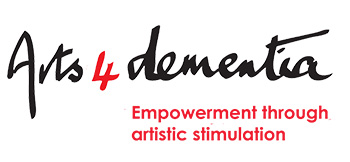Further Resources
Becoming a dementia-friendly arts venue or heritage site
The Alzheimer’s Society have produced these excellent guides:
- Becoming a dementia-friendly arts venue: A practical guide – a guide for arts venue managers and staff on how to make the environment, facilities and programming of arts venues accessible to people with dementia, their families and carers.
- Rethinking Heritage A guide to help make your site more dementia friendly Visiting heritage sites is one of the top activities that people living with dementia enjoy doing. The importance of heritage sites increases as we get older, as a place to relax, recover and engage with the environment around us. This guide has been produced to help heritage sites improve their accessibility and work towards becoming more dementia-friendly.
- Dementia-friendly rural communities guide Community-led guidance and signposting to resources which can help people living with dementia and carers to be included in all areas of community life.
- Dementia-friendly media guide The Alzheimer’s Society has worked with Channel 4 to develop this guide offering practical advice on how the industry can better support and include people living with dementia.
Guide to Dementia Friendly Screenings
Dementia friendly screenings aim to make cinema a key part of a dementia friendly community by providing an accessible, fun and inclusive experience. This enables people living with dementia, their families and carers to attend the cinema in a safe and welcoming environment.This guide from the Alzheimer’s Society was published in October 2017.
Using dance to re-energise and inspire
Dancing Moments, a creative South Asian dance participation project, has used dance as a tool for communication and improving physical fitness, to restore wellbeing for people in the early stages of dementia and their carers.
Led by Bisakha Sarker, artistic director of Chaturangan, Dancing Moments was conceived and delivered In partnership with Akademi South Asian Dance UK and Arts 4 Dementia. Sessions were delivered at The Bull Theatre in Barnet, by a team of professional South Asian dancers and musicians.
Here are a selection of apps to engage and stimulate the brain and books/studies on artistic stimulation for dementia:
Apps:
Alzheimer’s Apps is for iPhone, iPod touch or iPad and identifies other apps that could help to improve the quality of life for the person with dementia. This includes apps that could calm or engage the person. The goal is to improve the interaction with the carer and any other family visitors. This programme only identifies apps that have a significant chance of success and a peer review system is available within the app that allows for feedback to be shared with others about the experiences with certain apps.
The Brain Jog is a free app for iPhone, iPad, or iPod. It was developed by researchers at Queen’s University Belfast as part of a larger study looking at ‘brain training’ and the ability to prevent cognitive decline/dementia. App is designed for people 50 years of age and older.
Books:
Abraham, Ruth, When Words Have Lost Their Meaning: Alzheimer’s Patients Communicate Through Art, Abingdon, Greenwood Press, 2004, hardcover and ebook.
Aldridge, David, Music Therapy in Dementia Care, London, Jessica Kingsley Publishers, 2000, paperback.
Basting, Anne Davis, Forget Memory: Creating Better Lives for People with Dementia, London, The John Hopkins University Press, 2009, pbk and ebook.
Bazan, Salazar, Alzheimer’s Activities That Stimulate the Mind, London, McGraw-Hill, 2005, pbk and ebook.
Bryden, Christine, Dancing with Dementia: My Story of Living Positively with Dementia, London, Jessica Kingsley Publishers, 2005, pbk and ebook.
Buchalter, Susan I., Art Therapy and Creative Coping Techniques for Older Adults (Arts Therapies), London, Jessica Kingsley Publishers, 2011, pbk.
Clift, Simon and Camic, Paul M. Oxford Textbook of Creative Arts, Health, and Wellbeing. Oxford: Oxford University Press, 2016.
Creech, Andrea; Hallam, Susan; Varvarigou, Maria and McQueen, Hilary, Active Aging with Music: Supporting wellbeing in the Third and Fourth Ages, London, IOE Press, 2014, pbk.
Dowling, James R., Keeping Busy: A Handbook of Activities for Persons with Dementia, London, The Johns Hopkins University Press, 1995, pbk and ebook.
Frohlich, David M., Audiophotography: Bringing photos to life with sounds (Computer Supported Cooperative Work), London, Springer, 2004, pbk and ebook.
Hayes, Jill and Povey, Sarah, The Creative Arts in Dementia Care: Practical Person-centred Approaches and Ideas, London, Jessica Kingsley Publishers, 2010, pbk and ebook.
Innes, Anthea and Kasayka, Roseann E., Healing Arts Therapies and Person-centred Dementia Care (Bradford Dementia Group Good Practice Guides), London, Jessica Kingsley Publishers, 2001, pbk and ebook.
Killick, John and Craig, Claire, Creativity and Communication in Persons with Dementia: A Practical Guide, London, Jessica Kingsley Publishers, 2011, pbk.
Killick, John, Dementia Diary, London, Hawker Publications, 2008, pbk.
Killick, John, You Are Words, London, Hawker Publications, 1997, pbk.
Lee, Hilary and Adams, Trevor, Creative Approaches in Dementia Care, Hampshire, Palgrave Macmillan, 2011, pbk.
Madori, Linda Levin, Transcending Dementia Through the Ttap Method: A New Psychology of Art, Brain and Cognition, Baltimore, Health Professions Press, 2011, pbk.
Moniz-Cook, Esme, Early Psychosocial Interventions in Dementia: Evidence-based Practice, London, Jessica Kingsley Publishers, 2008, pbk and ebook.
Rio, Robin, Connecting Through Music with People with Dementia: A Guide for Caregivers, London, Jessica Kingsley Publishers, 2009, pbk and ebook.
Sacks, Oliver, Musicophilia: Tales of Music and the Brain, London, Picador, 2008, pbk.
Schweitzer, Pam and Bruce, Errollyn, Remembering Yesterday, Caring Today: Reminiscence in Dementia Care- A Guide to Good Practice (Bradford Dementia Group Good Practice Guides), London, Jessica Kingsley Publishers, 2008, pbk.
Schweitzer, Pam, Reminiscence Theatre: Making Theatre from Memories, London, Jessica Kingsley Publishers, 2006, pbk and ebook.
Stewart, Ellen Grenne, Kaleidoscope… Color and Form Illuminate Darkness: An Exploration of Art Therapy and Exercises for Patients with Dementia, Chicago, Magnolia Street Publishers, 2006, pbk.
Thomas, Vernada, Therapeutic Art Activities For Alzheimer’s/Dementia Patients, Dartford, Xlibris Corporation, 2008, pbk and ebook.
Thomas, Vernada, Therapeutic Art Activities For Alzheimer’s/Dementia Patients: 2, Dartford, Xlibris Corporation, 2008, pbk.
Waller, Diane, Arts Therapies and Progressive Illness: Nameless Dread, Oxford, Routledge, 2002, pbk and ebook.
Weisberg, Naisa and Wilder, Rosilyn, Expressive Arts with Elders: A Resource, London, Jessica Kingsley Publishers, 2001, pbk and ebook.
Zeisel, John, I’m Still Here, London, Piatkus Books, 2011, pbk and ebook.
Zoutewelle, Sarah, Chocolate Rain: 100 Ideas for a Creative Approach to Activities in Dementia Care, London, Hawker Publications Ltd, 2011, pbk.
Articles, Studies:
Algar, Katherine, Salisbury, Katie and Windle, Gill, ‘Arts programmes and quality of life for people with dementia – a review’, in Journal of Dementia Care, London, Hawker Publications, 2011, Vol. 19/3, p. 33-37.
Allan, Kate and Killick, John, ‘’A licence to be free’: changing the way we see dementia’, in Journal of Dementia Care, 2009, Vol. 17/5, p. 30-31.
Badsha, Kartar, ‘I think, therefore I am an expert on my dementia’, in Journal of Dementia Care, 2011, Vol. 19/1, p. 28-29.
Benson, Sue , ‘Music, Dance, Drama and Play’, in Journal of Dementia Care, 2009, Vol. 17/1,p. 8.
Clark, Katie, ‘Poems for life’, in Journal of Dementia Care, 2010, Vol. 18/5, p. 14-15.
De Bono, Norman, ‘Neuroscientist touts arts as way to stave off dementia’, in London Free Press, London, London Free Press, 2010. http://www.ifpress.com/news/london/2010/11/03/15950816.html. Professor Charles DeCarli of University of California claims that living a creative life is also important for defending against dementia.
Elliott, Jenny, Grant, David and Maroison, Sue, ‘Creative Ageing: A Practical Exploration of the Arts in the Healthcare of Older People’, Belfast, Chagning Ageing Partnership, 2010.
Fordham, Kathy, Hill, Vicky and Wynn-Jones, Freya, ‘‘A whole month of pleasure’- making music on the South Downs’, in Journal of Dementia Care, 2010, Vol. 18/4, p. 28-30.
Frearson, Annabel, ‘Live Music Now: Meaningful Moments Evaluation’, London, Live Music Now, 2009.
Greenland, Penny, ‘Dance: five-minute love affairs’, in Journal of Dementia Care, 2009, Vol. 17/1, p. 30-31.
Heathcote, Jane, ‘Life story work in practice: magic moments’, in Journal of Dementia Care, 2010, Vol. 18/3, p. 23-24.
Hebron, Damian, ‘Arts and dementia: first steps to national coordination’, in Journal of Dementia Care, 2010, Vol. 18/3, p. 31.
Heymanson, Cynthia, ‘Linking hands in circle dance’, in Journal of Dementia Care, 2009, Vol. 17/1, p. 13-14.
Hill, Heather and Newman-Bluestein, Donna, ‘Movement as the medium for connection, empathy, playfulness’, in Journal of Dementia Care, 2010, Vol. 18/5, p. 24-27.
Hong, Chia Swee and Hibberd, Jane M., ‘Museum outreach: making memory boxes’, in Journal of Dementia Care, 2009, Vol. 17/1, p. 16-17.
Howard, Susanna, ‘Safe on a calm shore’, in Journal of Dementia Care, 2009, Vol. 17/5, p. 21.
Killick, John, ‘Stimming! In Stuttgart’, in Journal of Dementia Care, 2010, Vol. 18/3, p. 15.
Knocker, Sally, ‘Music in the Air’, in Journal of Dementia Care, 2010, Vol. 18/2, p. 11.
Milwain, Elizabeth, ‘The brain and person-centred care: Making sense of the paradoxes of dementia’, in Journal of Dementia Care, 2010, Vol. 18/1, p. 23-25.
Milwain, Elizabeth, ‘The brain and person-centred care: Division of function across the cerebral cortex-what it means for people with dementia’, in Journal of Dementia Care, 2010, Vol. 18/2, p. 23-28.
Milwain, Elizabeth, ‘The brain and person-centred care: A deeper look at emotion in dementia’, in Journal of Dementia Care, 2010, Vol. 18/4, p. 20-23.
Parsons, Maria, ‘Ageing Creatively’, in Journal of Dementia Care, 2011, Vol. 19/1, p. 17.
Read, Kerrie and Woods, Sue, ‘A day out with their mates’, in Journal of Dementia Care, 2010, Vol. 18/3, p. 10.
Rogers, Rachel, ‘Dance for all’, in Journal of Dementia Care, 2011, Vol. 19/2, p. 12.
Sherratt, Chris, ‘Lighting Up: lessons learned in establishing an arts project’, in Journal of Dementia Care, 2010, Vol. 18/6, p. 22-24.
Stokes, Graham, ‘Extending empathy’, in Journal of Dementia Care, 2010, Vol. 18/2, p. 5.
Wood, Stuart, ‘Musical connections’, in Journal of Dementia Care, 2010, Vol. 18/4, p. 5.
Zoutewelle-Morris, Sarah, ‘Creative encounters: applying skills learned from the arts’, in Journal of Dementia Care, 2009, Vol. 17/5, p. 32-34.
Zoutewelle-Morris, Sarah, ‘“Imagine you are the ocean”’, in Journal of Dementia Care, 2010, Vol. 18/6, pg. 20-21.
Arts 4 Dementia is grateful to Mackenzie Bedford of the University of California at Berkeley for the compilation of these resources.



